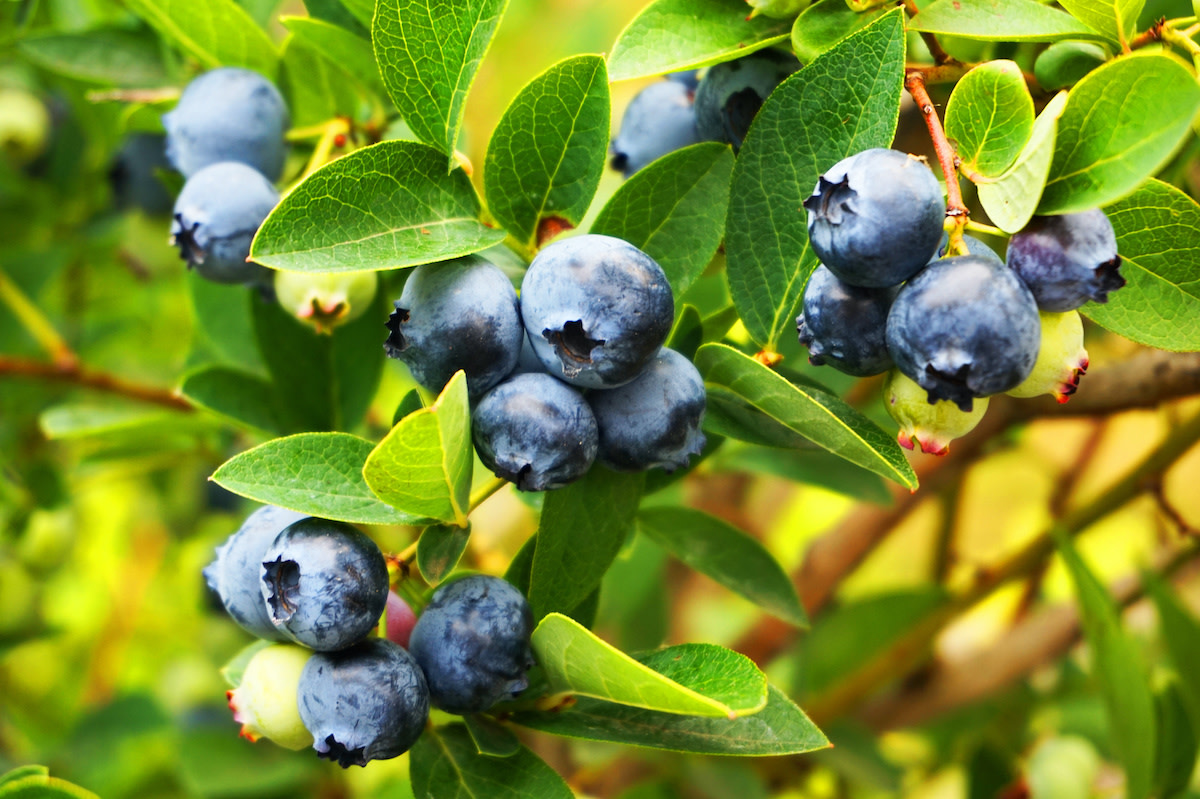12 Blueberry Varieties to Grow in Your Garden
Written by MasterClass
Last updated: Mar 11, 2022 • 3 min read
Blueberries are a key ingredient in jams, preserves, and smoothies. There are many varieties of this popular, nutritious fruit, and some of them are good choices for home cultivation.
Learn From the Best
What Are Blueberry Plants?
Blueberries are popular perennial fruit plants belonging to the genus Vaccinium, native to North America. The antioxidant-rich blue fruit has a long growing season, and it can grow in compact spaces and produce crops for up to twenty years.
5 Categories of Blueberry Plants
Blueberry plants break down into five main categories: Northern highbush, Southern highbush, lowbush, half-high, and rabbiteye. Growing requirements and fruit characteristics vary between and within these groups, but in North America, most grow somewhere from April to late September.
- 1. Northern highbush: Northern Highbush blueberries (Vaccinium corymbosum) are a common variety that grows best in colder climates and can reach six feet in height.
- 2. Southern highbush: These blueberries are complex hybrids of Vaccinium corymbosum and V. darrowii, a native evergreen species found in Florida. If the climate is warm enough, they will be evergreen throughout the winter.
- 3. Lowbush: Lowbush blueberries (Vaccinium angustifolium) are a creeping variety that grows best in colder climates. Lowbush blueberries are popular for ground cover.
- 4. Rabbiteye: Rabbiteye blueberries (Vaccinium virgatum) are the most common variety in the southeastern region of the United States and grow best in warmer climates.
- 5. Half-high: half-high blueberries are a hybrid of lowbush and northern highbush blueberries.
12 Types of Blueberry Plants
There are various varieties and cultivars within the main categories you can choose from for your home garden. Depending on your area and local availability, consider the following kinds of blueberries:
- 1. 'Bluecrop': This northern highbush cultivar, the most popular blueberry type worldwide, grows at a medium rate, is drought-tolerant, and provides a generous crop of high-quality, flavorful berries that ripen in late July and early August. 'Bluecrop' is a good for a cold-hardy blueberry, and it has solid disease resistance.
- 2. Blueray: This mid-season northern highbush variety is known for its high yields, making it a popular choice for many growers.
- 3. Patriot: This northern highbush varietal is a good choice for higher elevations. Patriot blueberry bushes produce large, firm berries in the early to mid-season.
- 4. Powderblue: A type of rabbiteye blueberry, the Powderblue variety is known for light blue blueberries that are especially sweet. This variety yields berries later in the season than other types.
- 5. Brightwell: The Brightwell variety can grow up to ten feet high and nearly as wide. It is a rabbiteye plant, so it prefers warmer temperatures. It is a self-fruiting variety, but gardeners can get larger yields by cross-pollinating Brightwell with other blueberry plants.
- 6. 'Climax': Known for its large, deep blueberries, this cultivar of rabbiteye grows best in full sun.
- 7. Darrow: This is a mid-to-late season variety of northern highbush blueberry plants. Like other highbush varieties, Darrow bushes are self-pollinating but will produce larger amounts of better-tasting fruit if you cross-pollinate them with other blueberry bushes.
- 8. 'Biloxi': This southern highbush blueberry cultivar works produces medium-size berries and works well in no-chill or low-chill environments.
- 9. Tifblue: This cold-hardy rabbiteye variety blooms early and produces large berries.
- 10. 'Top Hat': You can grow this half-high blueberry cultivar in pots. The plants remain small—one to two feet high and wide—but produce full-size fruit.
- 11. 'Pink Lemonade': This is a cultivar of rabbiteye blueberry that produces pink fruit instead of blue.
- 12. Jersey: Jersey is a highbush type that produces small, soft berries late in the season into early August.
Learn More
Grow your own garden with Ron Finley, the self-described "Gangster Gardener." Get the MasterClass Annual Membership and learn how to cultivate fresh herbs and vegetables, keep your house plants alive, and use compost to make your community—and the world—a better place.
